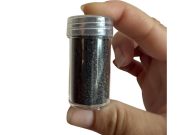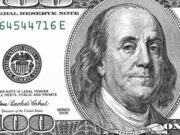The anticipation of the Christmas season is often filled with joy and excitement as families come together to celebrate and exchange gifts. In 1932, the desire for beer became a prominent item on many people’s wish lists.
The Eighteenth Amendment, ratified in 1919, prohibited the manufacturing, sale, and transportation of alcohol. To enforce this amendment, the Volstead Act was passed in 1919, defining an “intoxicating beverage” as anything with more than 0.5 percent alcohol. This strict definition resulted in the prohibition of beer and wine, in addition to hard liquor.
Throughout the 1920s, the nation was divided between the “drys” who supported Prohibition and the “wets” who wanted its repeal. In 1932, with the country facing the Great Depression, the Democrats adopted a party platform that endorsed the modification of the Volstead Act to allow for the production of beer. The Republicans, on the other hand, supported giving states the authority to decide the issue themselves.
With Franklin Roosevelt’s victory in the 1932 presidential election and the Democrats’ majority in Congress, the end of Prohibition seemed imminent. In the November election, nine states voted to repeal their Prohibition laws, and two others approved referenda supporting national repeal. It appeared that beer would be legalized by Christmas.
However, when Congress reconvened in December, the “wets” faced opposition from the “drys.” Speaker of the House John Nance Garner’s resolution to repeal Prohibition fell short of the necessary votes. Nonetheless, Garner remained optimistic, predicting that Congress would legalize some form of beer before Christmas.
In December, House Democrats, including President-elect Roosevelt, held meetings and scheduled committee hearings to consider a beer bill. Representative James Collier drafted a bill to legalize beer with less than 2.75 percent alcohol, emphasizing its non-intoxicating nature. The bill also included taxation on beer sales, highlighting the potential revenue it could generate for the federal government.
Despite the urgency, the House committee did not report the bill until mid-December, and the House passed it on December 22. The fate of “beer by Christmas” now rested in the hands of the Senate. The bill was referred to the Judiciary and Finance Committees, but time was running out.
In a last-ditch effort, Republican Senator Hiram Bingham attempted to bypass the committees and move the bill forward. However, Democratic Leader Joseph Robinson questioned the constitutionality of any beer under the Eighteenth Amendment. He insisted on careful consideration and accused Bingham of trying to embarrass the Democrats. Bingham’s motion failed, much to his frustration.
Although beer did not flow by Christmas or the end of the 72nd Congress, a constitutional amendment to repeal Prohibition was approved by both houses of Congress in February 1933. The Twenty-first Amendment was ratified in December 1933, officially ending Prohibition.
The 73rd Congress convened on March 4, 1933, ready to take action. On March 22, Congress passed a bill to legalize beer with an alcohol content of 3.2 percent or less. President Roosevelt swiftly signed the bill into law, reportedly remarking, “I think this would be a good time for a beer.”
As I raise my beer tonight in toast to you, dear reader. I’d like to cheers to life, hard work and charity.
And to our wealth,
Tom Anderson











